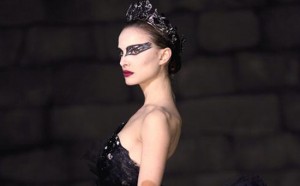This week, busy with a writing project, I barely poked my head from the Man Cave except to eat, sleep, or watch iCarly; into the confines of my cocoon the massive changes taking place in the world were filtered to a distant rumble, tremulous but implacable. Today, deadline met, I emerged to find a peoples’ revolution in Cairo, the protesters’ din of dissatisfaction turned to cheers. I am pleased by this apparent triumph of the democratic spirit, as well as by a victory for more peaceful, if passionate, tactics of overthrow. (I am, after all, half-Czech.) But something limits my happiness. I have learned to be cautious of my attraction to feel-good narratives in fiction, which, finding its unhealthy ally in the spin mechanisms of news and politics, makes me susceptible to feel-good metanarratives. Would that I find in myself an iota of the Egyptians’ courage and faith!
Also delayed by the week’s work: the next in my series of notes on this year’s Best Picture nominees. Beware of spoilers; other posts can be found here.
Black Swan
Natalie Portman is surrounded by a powerful force field of genre that clouds my mind, the result of her early starring role in Luc Besson’s gold-tinged fairy tale of a father-assassin, Leon: The Professional (1994) and — crucially — playing Padmé Amidala in the three Star Wars prequels (1999-2005). There in his mad but pedestrian fantasies George Lucas doomed Portman to the same plasticification he inflicted on Ewan McGregor, as though the director were showing off his ability to convert vital young actors into synthespians avant la lettre. Apart from these two mythically-overdetermined roles, Portman hasn’t really jumped out at me; certainly I wasn’t prepared for the vicious, wincing beauty of her performance in Black Swan.
Darren Aronofsky I also find something of an indirect object. His first film, Pi (1998), seemed almost untoppable in its perfection: minimal yet cosmic in the manner of the Twilight Zone and Outer Limits episodes that supplied its black-and-white grain and shoestring-budget nerd-horror. But we went our separate ways with the assaultive Requiem for A Dream (2000), whose blunt moralizing coarsened and corrupted the elan of its editing and cinematography. No fan of being brutalized, I ignored The Fountain (2006) and suspected The Wrestler‘s (2008) self-effacing warmth was just a tactic to get close enough to hurt me again.
Black Swan doesn’t need to line up neatly on some chart of my fears and fixations, of course; it’s allowed to be what it is, an exercise in style as broad as Sirk in its swoony melodrama and as slender as a surgical needle in its excitation of our nerves. Maybe the reason I want to graph it is because it so unerringly pinpoints a certain set of cinematic intersections — Alfred Hitchcock, Dario Argento, Brian DePalma, with a sprinkling of David Cronenberg and a side of Fritz Lang — pinning Portman to their nexus like a butterfly. It could be the most misogynistic film since True Lies (1994), that insufferably jovial Abu Ghraib of an action movie, but like James Cameron, Aronofsky has a way of turning the suffering of his women inside out, building up their vulnerability only to reverse it into (often deadly) toughness: female body become Swiss Army knife.
The movie’s narrative of possession — as in being possessed — encourages us to cheer for Portman’s character, Nina, even as she devolves into an ever more unhinged and unsettling state; she’s more than a little like Catherine Deneuve in Repulsion (Roman Polanski, 1965). Is Black Swan simply another story about a beautiful monster, whom we pity even as we recoil from her? By the film’s very design, it’s impossible to say: the closing moments made me laugh like I was finally getting a joke, but as in The Game (David Fincher, 1997), I couldn’t tell you what the punchline meant.

